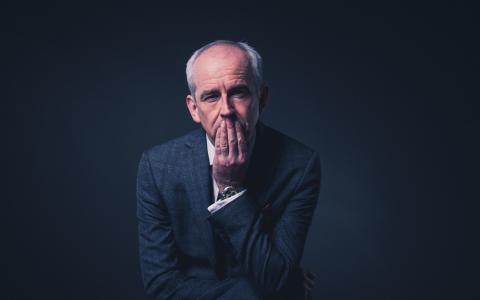
(Yahoo!Finance) - In 2020, when the coronavirus lockdowns began all throughout the United States, Olin Hyde was beginning to feel burned out.
His company, LeadCrunch — an AI-powered sales platform — had taken off. The firm grew from roughly zero annual revenue to more than $10 million in two years. Though naturally industrious and delighted at LeadCrunch’s (recently renamed “Rev") success, he was starting to lose momentum.
“It’s not a balanced or sustainable way to live. I was working for, you know, 100-hour weeks for the better part of 10 years,” Hyde told Yahoo Finance.
Worse yet, he disagreed with the board about what direction to take the company in. After some deliberation, he made one last executive decision: He decided to quit. He stepped down in January of 2021.
He would be among the first of the 1,337 CEOS who resigned that year. Since then, CEO resignations have persisted. Around 668 chief executives have left their posts since January, according to Challenger Gray and Christmas, a global business and executive coaching firm. That’s the highest January-May total since the firm began tracking monthly CEO changes in 2002. (The firm’s data only includes chief executives at U.S. companies with at least 10 employees that have been open for at least two years.)
While the term “Great Resignation” entered the labor lexicon in 2021, the CEO exodus can actually be traced back to 2019. That year saw an unusually high number of CEO departures, in part because of outside pressures spurring boards to fire chief executives like McDonald’s (MCD) Steve Easterbrook for bad behavior. The departures have continued, ramping up again in 2021, as employees — including chief executives — began re-evaluating their priorities.
'We tend to see CEO turnover during times of big change'
In the last year, industry leaders ranging from Amazon’s (AMZN) Jeff Bezos to American Airlines’ (AAL) Doug Parker have left their chief executive posts. More recently, Meta’s (META) Sheryl Sandberg announced her pending departure from the social media giant’s No. 2 spot. And just Tuesday, Bloomberg reported that the 51-year-old CEO of a $68 billion investment firm was quitting to "do nothing" at the beach. That very day, Pinterest (PINS) said its CEO, Ben Silbermann, would be stepping down and that a Google executive would take over as the company expands its e-commerce business.
“We are seeing an uptick. That's for sure,” Andrew Challenger told Yahoo Finance. “Companies are kind of reassessing the way they are going to approach whatever business they're in and in a completely new paradigm. COVID just shifted a lot ,and we tend to see CEO turnover during times of big change.”
Challenger notes that like other workers, CEOs are taking some time to reflect on their lives and motivations for work.
“They might have looked at their life, reevaluated it, taken stock of what's important to them and decided they want to change how they're going to live in this upcoming period,” Challenger says.
Since quitting his job, Olin Hyde has concentrated on working out (when I contacted him, he sent me a photo of himself on a bike trail at Mammoth Lake in California) and fighting climate change. He’s also joined the board of directors at five different companies.
“I've decided that my career is really going to be around climate and making the world a better place and there's a lot of ways to do that. For instance, next semester, I'm teaching a class at UCSD, University of California, San Diego, and I'm mentoring a few kids now that are in their early 20s,” Hyde says. “And I really think that, you know, I needed to work on me a little bit because I was spending all my time working on the business and you know, there's some things that are more important than the business life.”
'I don't care how much you pay me'
Experts have cited many reasons for the Great Resignation ranging from burnout to scandal to simply retirement. The tight labor market has also given workers the latitude to resign and find other jobs. But perhaps one of the most salient factors is the need for meaning.
Bill George, senior fellow at Harvard Business School, and the former chair and CEO of Medtronic, says, “That's why we've had this Great Resignation — to say, look, I don't care how much you pay me that I don't spend my life doing that. I want to work for a real sense of purpose.”
Though content with his current life, Hyde still might return to the startup world, provided certain conditions are met.
“Why did I leave? I think the better question is, why didn't I go back? I think I would go back and enthusiastically join another company in a leadership role if I truly believed in its mission. What I really would seek going forward in my life is an incredible mission for a company with an amazing culture with an impact that is measurable and sustainable to society at large.”
By Dylan Croll



